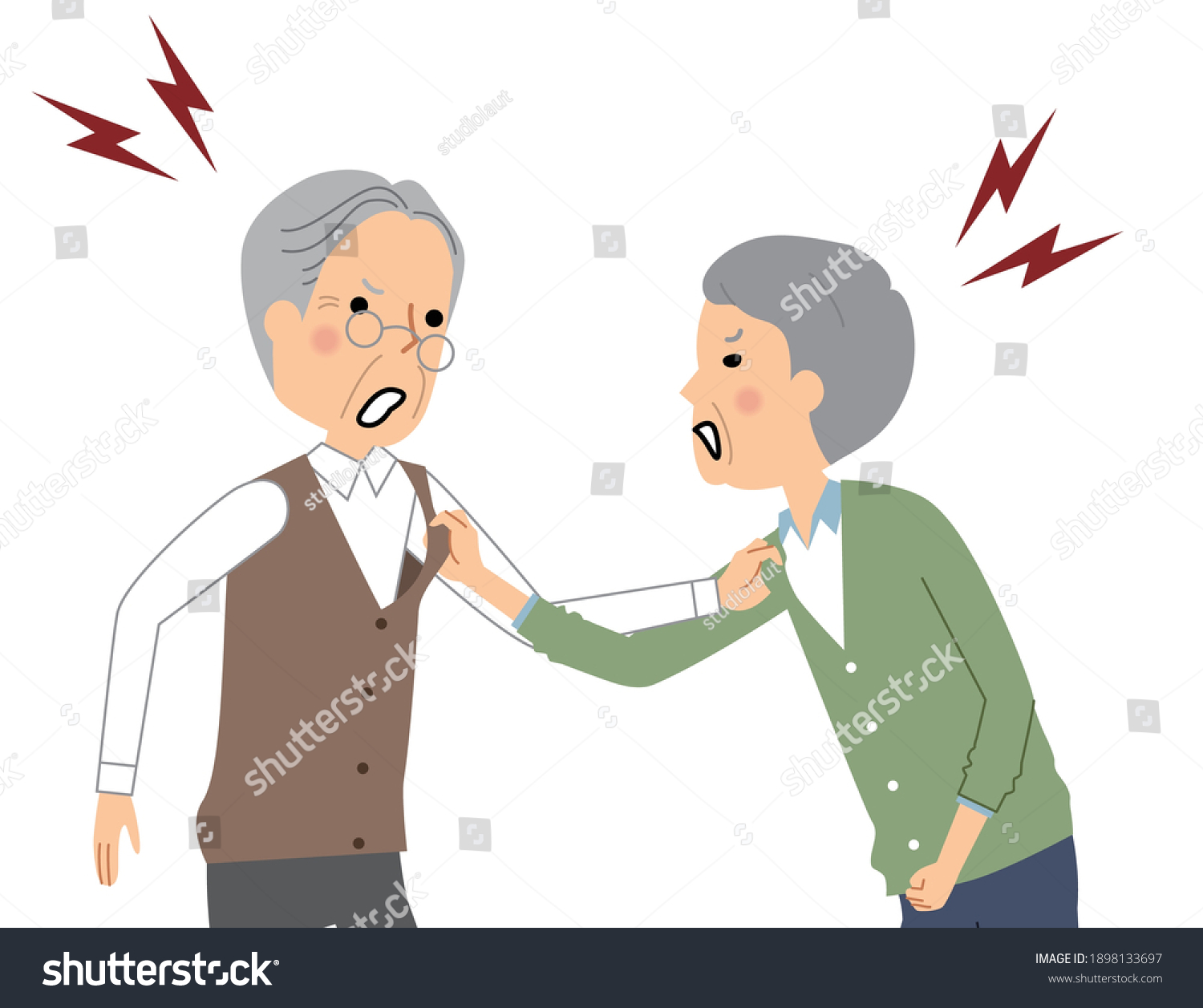Understanding The Psychology Behind People Yelling At Each Other
People yelling at each other is a common occurrence in both personal and professional environments, yet it remains a complex and emotionally charged phenomenon. Whether it's a heated argument between family members or a disagreement in the workplace, such conflicts often stem from deeper issues like stress, misunderstandings, or unresolved grievances. Understanding the reasons behind this behavior can help individuals develop better communication skills, de-escalate tense situations, and foster healthier relationships. This article explores the psychological and social factors that contribute to such confrontations and offers practical strategies for conflict resolution.
While yelling may seem like a natural reaction during times of stress or anger, it often leads to negative outcomes. The emotional intensity of such interactions can damage relationships and hinder effective communication. However, by recognizing the triggers and underlying causes, individuals can learn to manage their emotions and respond more constructively. This article delves into the dynamics of these interactions, offering insights into why people resort to yelling and how to prevent it from escalating.
Through expert analysis and real-life examples, this article aims to provide valuable insights into the psychology of conflict. By understanding the emotional and psychological factors that drive people to yell, readers can gain the tools necessary to navigate challenging situations with greater empathy and understanding. Whether you're looking to improve your personal relationships or enhance workplace dynamics, this guide offers actionable advice for managing conflict more effectively.
Read also:How Old Is Caroline Leavitts Husband Discover His Age And More
What Causes People to Yell at Each Other?
Yelling is often a reaction to intense emotions such as anger, frustration, or fear. When people feel overwhelmed or threatened, they may instinctively raise their voices as a way to assert dominance or express their feelings. However, this behavior can escalate quickly, leading to further conflict and emotional distress. Understanding the root causes of yelling is essential for preventing such confrontations from spiraling out of control.
- Stress and anxiety can trigger emotional outbursts.
- Miscommunication often leads to misunderstandings and frustration.
- Unresolved issues or past grievances can resurface during arguments.
Is Yelling Always a Sign of a Deeper Problem?
While occasional yelling may not necessarily indicate a serious issue, frequent or intense episodes can be a sign of deeper emotional or psychological problems. For example, individuals who struggle with anger management or have experienced trauma may be more prone to yelling as a coping mechanism. Additionally, chronic yelling in relationships can erode trust and intimacy, leading to long-term damage if left unaddressed.
Why Do People Yelling at Each Other Often Fail to Communicate Effectively?
During heated arguments, the emotional intensity can overshadow rational thinking, making it difficult for individuals to communicate clearly. Instead of addressing the root cause of the conflict, people may focus on winning the argument or defending their position, which can exacerbate the situation. Learning to listen actively and respond calmly is crucial for resolving disputes without resorting to yelling.
How Can People Yelling at Each Other Learn to Communicate Better?
Improving communication skills is key to preventing conflicts from escalating into shouting matches. Techniques such as active listening, empathy, and emotional regulation can help individuals express themselves more effectively while remaining respectful of others' perspectives. By practicing these skills regularly, people can reduce the likelihood of yelling and foster healthier relationships.
What Are the Psychological Effects of Yelling on Relationships?
Yelling can have lasting effects on both personal and professional relationships. In romantic partnerships, frequent yelling may lead to emotional distance and a lack of trust. Similarly, in the workplace, yelling can create a hostile environment that reduces productivity and morale. Understanding the psychological impact of yelling is essential for repairing damaged relationships and preventing future conflicts.
Can People Yelling at Each Other Still Resolve Their Conflicts Peacefully?
Yes, even in the midst of a heated argument, it is possible to resolve conflicts peacefully. By taking a step back and focusing on the underlying issues rather than the emotions, individuals can work together to find common ground. Techniques such as compromise, negotiation, and collaboration can help bridge divides and restore harmony to relationships.
Read also:Fans Secret Therapy Unveiling The Power Of Fandom For Mental Wellness
What Are Some Effective Strategies for De-Escalating Conflicts?
De-escalation techniques are essential for managing conflicts before they escalate into yelling matches. These strategies include:
- Taking deep breaths to calm down before responding.
- Using "I" statements to express feelings without blaming others.
- Seeking a neutral third party to mediate the discussion.
Why Is It Important to Address the Root Causes of People Yelling at Each Other?
Addressing the underlying causes of conflict is crucial for preventing recurring issues. Whether it's unresolved emotional pain, communication barriers, or external stressors, identifying and resolving these factors can help individuals avoid future confrontations. By focusing on the root causes, people can build stronger, more resilient relationships that withstand challenges.
How Can Individuals Prevent Themselves from Yelling During Arguments?
Preventing yelling requires self-awareness and emotional regulation. By recognizing the triggers that lead to anger and frustration, individuals can develop strategies to manage their emotions before they escalate. Techniques such as mindfulness, stress management, and conflict resolution training can help people maintain their composure during challenging situations.
What Role Does Empathy Play in Resolving Conflicts Between People Yelling at Each Other?
Empathy is a powerful tool for resolving conflicts and reducing the likelihood of yelling. By putting themselves in the other person's shoes, individuals can better understand their perspective and respond with compassion rather than anger. This approach fosters mutual respect and encourages open, honest communication, which is essential for resolving disputes effectively.
How Can Parents Teach Their Children to Avoid Yelling During Conflicts?
Parents play a critical role in modeling healthy communication skills for their children. By demonstrating patience, active listening, and emotional regulation, parents can teach their children how to navigate conflicts without resorting to yelling. Encouraging open dialogue and providing constructive feedback can help children develop the skills they need to manage their emotions and resolve disputes peacefully.
Conclusion: Building Stronger Relationships Through Effective Communication
While people yelling at each other is a common occurrence, it doesn't have to define relationships. By understanding the psychological and emotional factors that contribute to such behavior, individuals can learn to manage their emotions and communicate more effectively. Whether it's through personal growth, conflict resolution training, or seeking professional help, there are many ways to prevent yelling and foster healthier, more harmonious relationships.
Table of Contents
- What Causes People to Yell at Each Other?
- Is Yelling Always a Sign of a Deeper Problem?
- Why Do People Yelling at Each Other Often Fail to Communicate Effectively?
- How Can People Yelling at Each Other Learn to Communicate Better?
- What Are the Psychological Effects of Yelling on Relationships?
- Can People Yelling at Each Other Still Resolve Their Conflicts Peacefully?
- What Are Some Effective Strategies for De-Escalating Conflicts?
- Why Is It Important to Address the Root Causes of People Yelling at Each Other?
- How Can Individuals Prevent Themselves from Yelling During Arguments?
- What Role Does Empathy Play in Resolving Conflicts Between People Yelling at Each Other?
Article Recommendations

